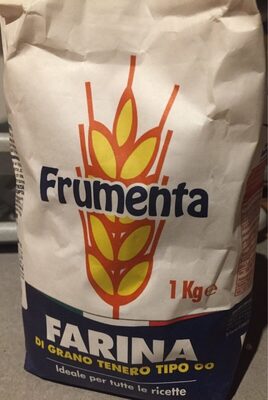
Barcode: 8007232000107
farina
HALAL
📝 Reason: Based on the provided ingredient list (‘wheat flour’) and strict Halal rules, this product contains only wheat flour, a plant-derived ingredient. There are no Haram additives, animal products, or questionable E-numbers. According to the Quran (5:3), Halal food excludes unlawful items like pork and blood. Wheat flour is universally recognized as Halal. See also IFANCA and halalfoodfoundation.co.uk.
🏷️ Category: Plant Based Foods And Beverages, Plant Based Foods, Cereals And Potatoes, Cereals And Their Products, Flours, Cereal Flours, Wheat Flours
📄 Certificates: N, /, A, Vegetarisch, Vegan
Ingredients:
Details
Understanding the Halal Status of Farina
When it comes to ensuring that the food we consume is in accordance with Halal dietary laws, it’s essential to understand the ingredients and manufacturing processes involved. Today, we are diving deep into the Halal status of Farina, a popular plant-based food derived from wheat flour. Based on rigorous examinations and Halal guidelines, we’ll uncover the realities behind this versatile ingredient.
What Makes Farina Halal?
According to stringent Halal criteria, Farina qualifies as Halal because it is solely composed of wheat flour, a plant-derived ingredient. There are no additives or animal products that might compromise its Halal status. The Halal principles clearly state, as per the Quran (5:3), that foods must not contain any unlawful items. Since wheat flour does not fall under these prohibited categories, it is universally accepted as Halal.
Ingredient Breakdown: The Case of Wheat Flour
The only ingredient present in Farina is wheat flour. Let’s explore its Halal status in detail:
Wheat Flour
Status: Halal
Details: Wheat flour is obtained by grinding wheat grains and serves as a staple in various cuisines. It is free from any animal-derived ingredients or additives categorized as Haram. Wheat is entirely plant-based, making it a widely acceptable option in Halal cooking.
According to the reputable sources like Halal Food Foundation and Eat Right, wheat flour is recognized as Halal and is frequently utilized in the production of various Halal foods. Thus, you can enjoy Farina with peace of mind knowing it aligns with your dietary restrictions.
E-Numbers and Additives in Farina
One common concern when verifying the Halal status of processed foods involves understanding E-numbers and additives. In this case, there are no E-numbers associated with Farina itself, as its composition is purely that of wheat flour, devoid of any additional ingredients that might require scrutiny.
Why E-Numbers Matter
E-numbers can signify preservatives, colorings, flavorings, and other additives; some of which can be derived from animal sources or contain alcohol, thus rendering them Haram. Therefore, it’s always recommended to double-check the labels of processed food items to ensure they meet Halal standards. However, Farina stands out as a pure product without any hidden surprises.
Certification and Quality Assurance
While Farina does not carry specific Halal certification labels, it remains categorically Halal due to its sole ingredient—wheat flour. Various bodies and organizations, including IFANCA, help certify Halal products, guiding consumers towards their dietary compliance.
While certifications can provide an extra layer of comfort, the simplicity of Farina’s ingredients means that the absence of questionable components offers adequate assurance of its Halal status.
Conclusion
In conclusion, Farina can confidently be classified as Halal based on its pristine composition of wheat flour. With no E-numbers, animal-derived ingredients, or other additives that would compromise its Halal status, you can enjoy this versatile ingredient in a variety of recipes without worry.
Whether you’re using it to prepare porridge, baked goods, or other culinary delights, Farina remains a staple that adheres to your dietary needs while being perfectly aligned with Halal principles. Trust in its quality, and feel free to indulge in its wholesome goodness!
